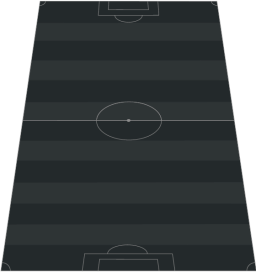Editor’s Note: Rowan Simons is the Chairman at China ClubFootball FC, the first foreign-owned football enterprise in mainland China, and author of ‘Bamboo Goalposts’ (Macmillan). He has also advised a number of international and Chinese sports, media and entertainment clients. The opinions expressed in this commentary are solely those of the author.
Story highlights
The China Super League's January transfer window has seen record figures spent
The move is seen as a way to meet President Xi Jinping's lofty ambitions for Chinese football
Attitudes toward the sport are changing in China as the sport gains popularity
With the world’s football authorities occupied with electing the next FIFA president, China’s billionaire club owners have been busy putting the European soccer establishment on notice with over $300 million spent on foreign players.
As the transfer window comes to a close following headline-grabbing after headline-grabbing acquisition by Chinese teams, the China Super League’s February 26 deadline has become a red-letter day for the sport.
Only superstars locked into the most lucrative contracts, or at clubs owned by even richer groups, have remained beyond China’s reach.
China’s current obsession with foreign football talent is just one financial flashpoint in a much bigger revolution that is being orchestrated by one man – the new architect of football reform.
READ: China’s million-dollar dream of soccer world domination
Football: A force for change?
President Xi Jinping has a grand vision of football which is nothing less than a “foundation for happiness in modern society,” and his populist thoughts are enshrined in a 50-point State Council plan revealed in March 2015.
This historic set of instructions is the most radical blueprint for change ever seen in modern China, overturning 60 years of Soviet ideology. Incredibly, it applies only to football, while all other sports remain in the 1950s.
Starting with the shock separation of the Chinese Football Association from the government and tackling in turn all the key issues at every level through to the grassroots, Xi has sketched out the first coherent plan for how China can become a true football nation.
His vision should be recognizable immediately to the rest of the world because it is our vision – football, in all its colors and with all its local traditions, bringing communities together and encouraging cultural and social enterprise at all levels of the economy.
If only everyone would just follow Xi’s plan, all would be well in the Confucian worldview. There is only one problem. Like religious texts, Xi’s plans are open to interpretation.
Long-term vision
The international news media summarized his epic vision with a couple of choice long term goals – 50,000 schools! Win the World Cup!
Required to mobilize their own resources in support of the Xi, Chinese officials and investors have sought opportunity to flatter.
Broadly, they see three options: A) targets that are quick and easy, B) targets that are slow and hard and C) crazy ideas that might just help reach a target if they ever worked. Budget is not a limiting factor here; it correlates directly with level of commitment.
Since Xi’s plan recognizes fully that building a football nation will take decades, there is actually only one big target that can be achieved in the time he remains in power.
In his medium term outlook, Xi talks about “Chinese clubs competing at the highest levels in Asia.” Since Guangzhou Evergrande has proved already that money can buy foreign talent which can win the Asian Champions League, other billionaires are rushing to meet that target too.
That explains the foreign talent bubble, but what about the rest of the President’s plan – what about the targets that are slow and hard and that cannot be solved by cherry-picking the superstar market?
READ: China FA posts job advert for new national team manager
Changing fundamental attitudes
For many decades, football wasn’t considered a career in China. Unless it was to be your profession, why waste time playing it? The selected few did play, relentlessly, until either rejected or forced to labor for match-throwing club owners.
Now it is springtime. Football has been rehabilitated by Xi and has become “voluntarily compulsory’ – known as “yiwu” – both inside and outside schools across the nation.
Naturally, there is plenty of room for tangential translation and overzealous short term campaigns. Building pitches is considerably easier and quicker than building well-coached teams to play on them. One education bureau was even accused of showing its over-commitment by banning basketball and volleyball – something that it denied.
Stamina to last the course?
By definition, a presidential fast-track football revolution will last only as long as its maker. The clock is ticking and so far the Chinese FA has been unable to follow Xi’s instructions to reform itself. This is his flagship policy.
And once – if – the teams of superstars like Lionel Messi and Cristiano Ronaldo can be tempted to sell their prize assets for bundles of cash, Chinese club owners will start looking at their expensive foreign stars whose salaries no longer impress the president. Of course, he may not be impressed already. He should say.
For all the inefficient allocation of resources symbolized by the transfer window and all the uncoordinated construction of huge pitch complexes for phantom teams, this unprecedented momentum cannot help but move Chinese football in the right general direction.
If nothing else, after 30 years of working hard, many millions of Chinese families are ready to spend some money having fun. Alongside cinemas and shopping, city stadiums and local parks should be full.
As Xi well knows, China’s transition to a happy modern society depends on it.







